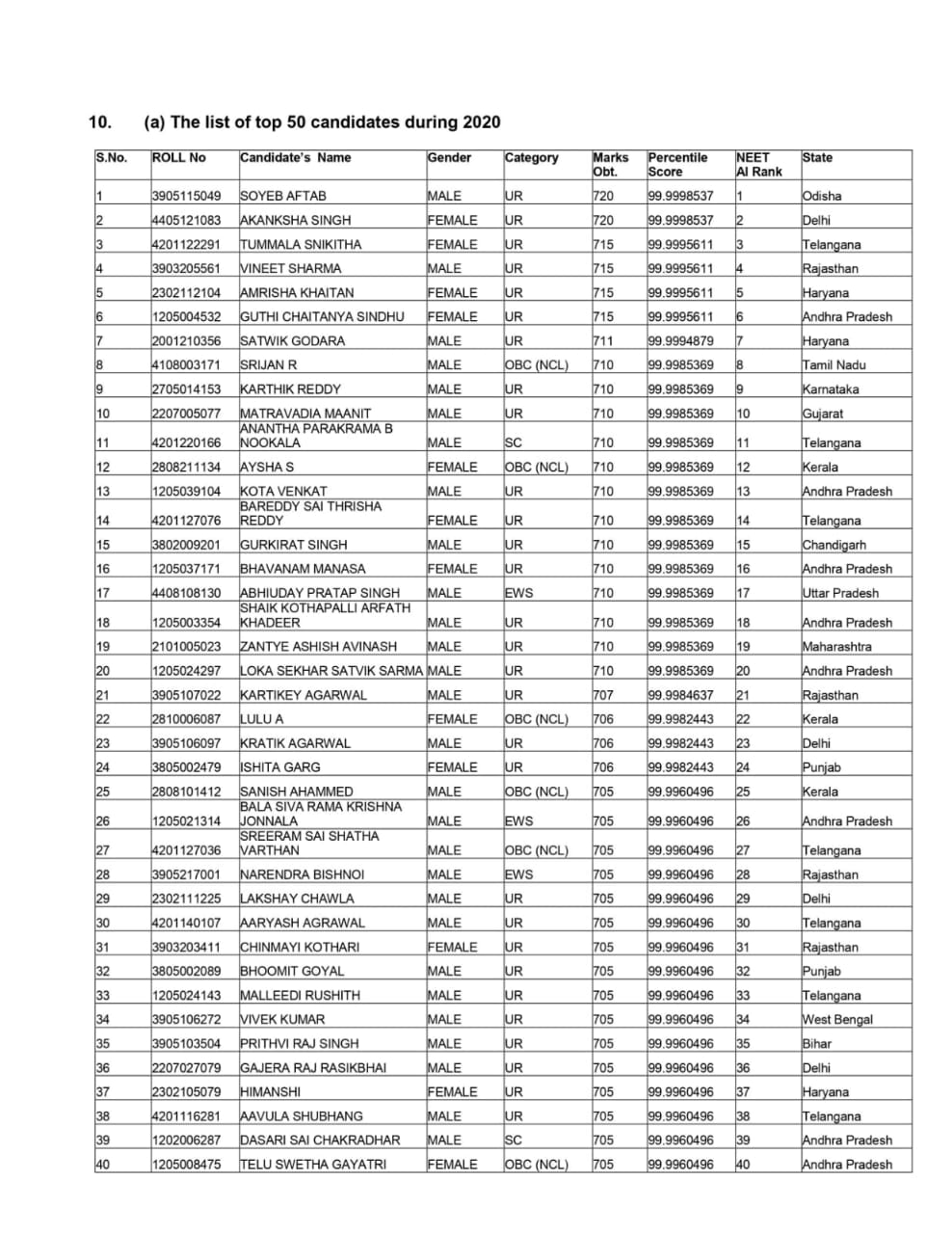
Bhubaneswar, Oct 17: Soyeb Aftab, who topped the NEET on Friday with a perfect score of 720, credited his parents for the success, saying he never expected to bag the first rank in the medical entrance exam even though he was optimistic.
Mr. Aftab, the son of homemaker Sultan Razia and Sheik Mohammad Abbas who owns a small business, said it was his mother who motivated him to aspire for becoming a doctor.
“I will like to give all the credit to my mother who motivated me to aspire for being a doctor and stood by me all along,” he said.
Mr. Aftab, 18, said his father extended all the financial support but it was his mother who spent her maximum time supporting him on his studies.
He said that he moved to the coaching hub of Kota in Rajasthan after the class 12 board exam to prepare for the National Eligibility and Entrance Test (NEET).
“My mother and younger sister accompanied me to Kota and made all the arrangements for the
The Rourkela boy said most of his time during the day was spent at the coaching class.
“I studied for only three hours in the night initially, and eventually increased the time as the examination approached,” he said.
Mr. Aftab, who scored a perfect 720 out of 720 in the exam, said, “I am absolutely happy. There is no doctor in my family. I would like to study in AIIMS-New Delhi.”
“All the credit goes to my mother and father,” he said, reacting to his score.
Mr. Aftab said that he was confident of getting a place in the top 50 after verifying the answer key of all the questions but never expected to top the exam.
Mr. Aftab and Delhi’s Akansha Singh scored 720 out of 720 marks but the Odisha boy was ranked first and Singh second as per the National Testing Agency’s tie-breaking policy, officials said.
The tie-breaking policy takes into account factors such as age, subject-wise marks and number of incorrect answers, they said.







Comments
Add new comment